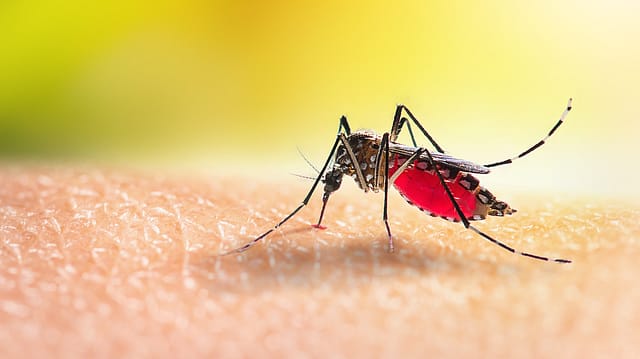Dengue fever upsurge: Karnataka, Tamil Nadu, Maharashtra and Kerala turn hotspots
ADVERTISEMENT

Karnataka, Tamil Nadu, Maharashtra and Kerala have become the hotspots of dengue fever, says a study based on over 120,000 diagnostic tests across India.
Karnataka registered 32,886 cases in 2024, followed by Tamil Nadu with 27,378 cases and Maharashtra with 19,385 cases. Kerala, despite a smaller overall caseload of 20,674 cases, reported 128 deaths, says the report titled ‘Dengue: The Silent Threat of the Monsoon Season’ released by digital healthcare platform PharmEasy.
The other leading States with high prevalence of dengue fever are Maharashtra (19,385 cases), Uttar Pradesh (15,868 cases) and Delhi (10,585 cases), says the report. States like Arunachal Pradesh, Nagaland, Andaman and Nicobar Islands, and Meghalaya had fewer than 100 cases, showing significant regional variation in dengue prevalence.
The study says individuals aged 11 to 30 have the highest dengue positivity rates, when compared to other age groups. Among those affected, men under 50 have higher positivity rates, while women over 50 tend to experience more severe complications.
"Dengue remains one of India’s major seasonal health concerns, especially during and after the monsoons. Most recover after a short illness, but for some, it can lead to complications due to a drop in platelet count, plasma leakage, bleeding, or low blood pressure," says Gaurav Verma, CBO, API Holdings (Pharm Easy).
January 2026
Netflix, which has been in India for a decade, has successfully struck a balance between high-class premium content and pricing that attracts a range of customers. Find out how the U.S. streaming giant evolved in India, plus an exclusive interview with CEO Ted Sarandos. Also read about the Best Investments for 2026, and how rising growth and easing inflation will come in handy for finance minister Nirmala Sitharaman as she prepares Budget 2026.
Dengue follows a clear pattern tied to the Indian monsoon. Every year, when the rains begin in June, the humidity increases, creating an ideal breeding ground for Aedes mosquitoes, particularly in stagnant water. This also raises the risk of outbreaks. Lab data shows that dengue cases begin to rise in July, peak from August to October, and decline by December. The study also says while tests increased annually, with earlier seasonal testing (May vs June), positivity rate is steadily decreasing due to increased awareness over the years.
Dengue fever is associated with symptoms like persistent vomiting, abdominal pain and tenderness, lethargy and/or restlessness and sudden behavioural changes.
